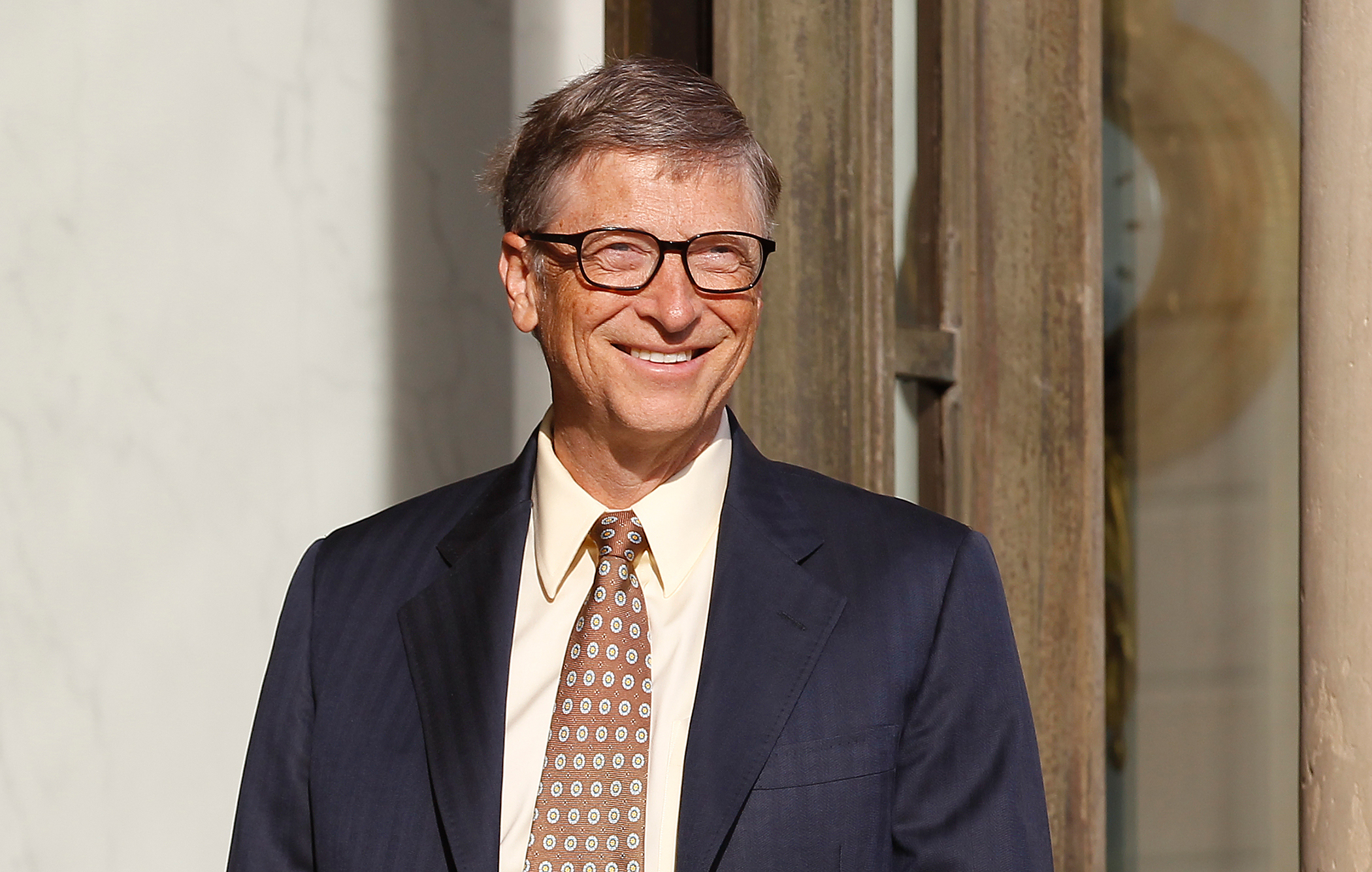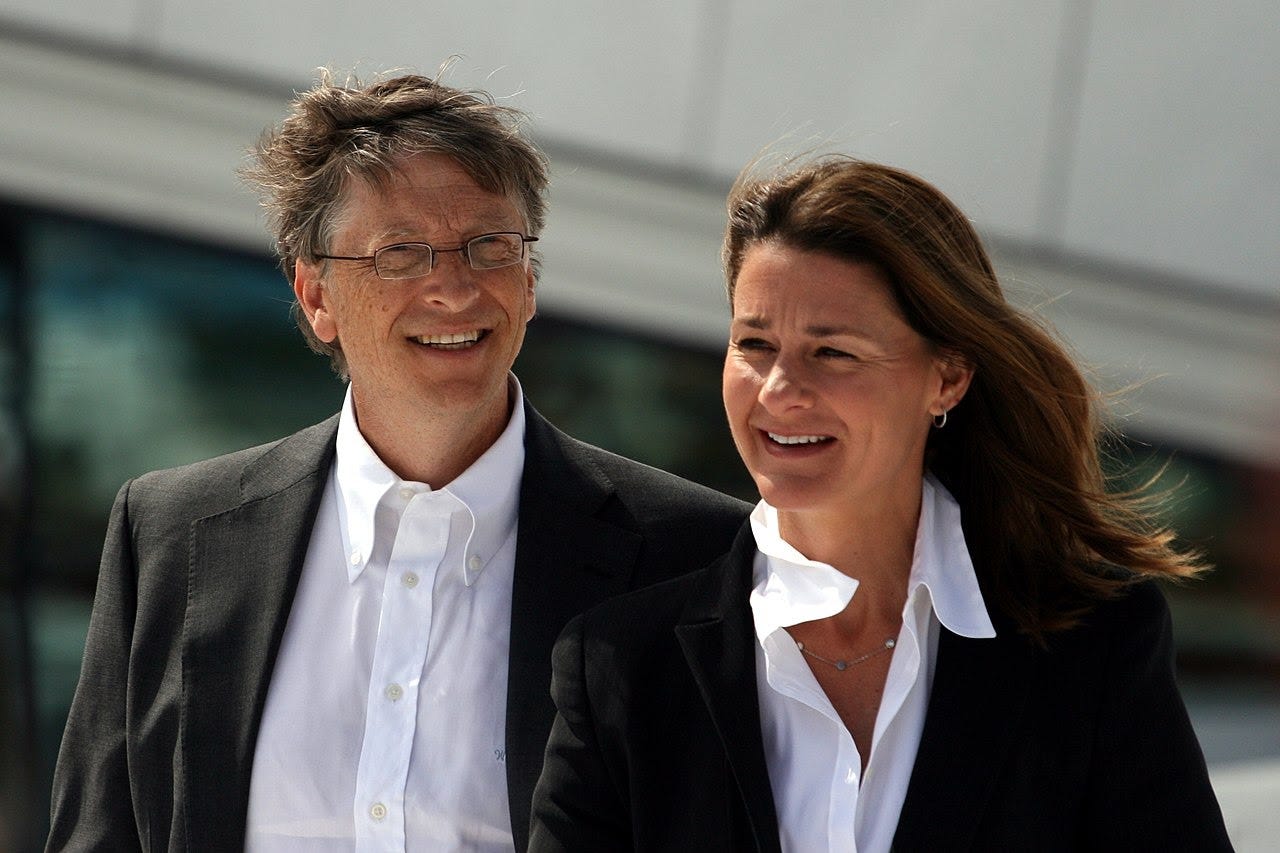Tim Schwab is a freelance journalist whose 2019 investigation into the Gates Foundation won multiple awards, including an Izzy from the Park Center for Independent Media and a Deadline Club Award from the Society of Professional Journalists.

Bill Gates remains the same monopolist he was at Microsoft.

Bill Gates, the founder of Microsoft, head of the $67 billion Gates Foundation, and owner of a $110 billion private fortune, should be one of the most scrutinized people in the world, but he’s not. He’s actually one of the most exalted and celebrated for his charitable giving. Over the last two decades, the news media has published endless, positive stories about Gates’s philanthropic donations. But this only tells one side of the story, and a fairy tale at that. The real story is actually much more complex, and interesting.
Bill Gates is not simply giving away money, he’s buying influence. He uses charitable donations to put his hands on the levers of public policy, shaping how we medicate, educate, and feed the world. This is political power, not mere charity. He’s not a humanitarian as we’ve been told, he’s a power broker—not a selfless philanthropist. In the same ways that the super-rich use lobbying and campaign contributions to influence politics and public policy, philanthropy is one more tool in the multi-billionaire’s toolbox to buy influence.
We shouldn’t doubt that Bill Gates is well meaning in his philanthropic efforts, in the sense that he believes he really is helping the world. The problem is he’s helping the world the only way he knows how—by taking control. Just as Microsoft built a toxic reputation as a monopoly under Bill Gates’s leadership, the Gates Foundation today is also widely criticized for its abuses of power. The Gates Foundation, internally, decides how to solve problems, then it floods the zone pushing charitable donations to NGOs, political advocacy groups, think tanks, private companies, governments, and the news media. Suddenly, an entire field is rowing in the same direction, chasing the foundation’s dollars and following its priorities, often in directions that are controversial, if not ineffective. In many of the fields in which the foundation works, it is the most powerful voice and influencer, and is hounded by criticism of monopoly power.
The areas in which Gates works, like public health and public education, are supposed to be organized and managed through a public, democratic process. When we allow Bill Gates to take singularly influential, or dominant, voice in how we manage a given public policy, we’re essentially giving in to oligarchy, a model of power in which the richest guy gets the loudest voice.
2. The Gates Foundation is often hurting the people it claims to help.
:no_upscale()/cdn.vox-cdn.com/uploads/chorus_asset/file/3778374/GettyImages-164681904.0.jpg)
For two decades, the Gates Foundation trumpeted how its market-based solutions and innovative technology would revolutionize fields like education, agriculture and public health, and create a world where “All lives have equal value,” the foundation’s motto. In specific and in general, the Gates Foundation has failed to accomplish what it set out to do. Be it eradicating polio or revolutionizing African agriculture, it’s failed. It’s not that the Gates Foundation has never helped anyone; of course the tens of billions of dollars that the foundation has given away have helped people at times. However, we also have to understand that the foundation’s charitable crusades have also hurt people. Its bullying efforts to solve other people’s problems, to put itself in charge of other people, to plant its flag and claim dominion over certain fields, means the foundation operates in an anti-democratic manner. Not surprisingly, it’s often doing more harm than good. Even the foundation’s best deeds are surrounded by criticism, opportunity costs, and collateral damage.
“Just because you don’t hear the voices of Gates’s critics in the news media that often doesn’t mean they aren’t legion.”
Farmer organizations throughout Africa, for example, are now publicly asking the Gates Foundation to end its agricultural programs. Not just because they have failed, but because they are creating obstacles to the real pathways of progress. Likewise, during the pandemic, Bill Gates trumpeted that his humanitarian partnerships with Big Pharma would deliver “vaccine equity” to the global poor. Instead, his plan presided over grotesque inequality, what became known as vaccine apartheid. In all of the areas where the Gates Foundation intervenes, its work is highly contested. Just because you don’t hear the voices of Gates’s critics in the news media that often doesn’t mean they aren’t legion.
3. The Gates family and the Gates Foundation are highly subsidized by us, taxpayers.

The Gates family has avoided billions of dollars in taxes through their charitable donations because in the United States, the tax code richly rewards billionaire philanthropy. The Gates Foundation also benefits from generous tax treatment. The money the Gates family donates goes from their private wealth to their private foundation, where it sits in a bank account, collecting billions of dollars in investment income most years, virtually tax free. Some years the foundation generates more income from its investments than it gives away in charity. This begs the question, insofar as the Gates Foundation is heavily involved in making money, not just giving it away, should it be called a charity? Is it deserving of so many far-reaching tax benefits?
There is one more way that the Gates Foundation benefits from our money: public funds. The foundation aggressively pressures rich nations to co-fund the foundation’s charitable projects. Once again, taxpayers are richly subsidizing, to the value of billions of dollars, Bill Gates’s philanthropic work. So why don’t we taxpayers get any credit for the work done with our tax dollars? All the credit goes to Bill Gates. And why don’t we have any oversight or accountability around how Bill Gates uses our money? Given the large sums of public funds, from taxpayers around the world, that flow into the Gates Foundation’s projects, its operations are subject to stunningly few checks or balances. Why should we give Bill Gates, one of the richest men in the world, any tax benefits or any public subsidies for anything he does? What happened to the idea that everyone should pay their fair share?
4. Bill Gates, himself, is the single biggest beneficiary of the Gates Foundation.

Through the tax benefits, the public applause, the media influence, and the political power he gains through his philanthropy, Gates derives far-reaching benefits from his charitable work. We are long overdue to have an open, honest debate about the self-serving nature of billionaire philanthropy.
“The future influx of hundreds of billions, or even trillions, of dollars in new philanthropic funding is cause for concern, not celebration.”
While Bill Gates is the perfect case study, the problem is bigger than him. Hundreds of other billionaires, including Mark Zuckerberg and Jeff Bezos, are already pledging to donate most of their wealth through philanthropy, which will position them as key influencers of all manner of public policy. Is this the world we want to live in? One where our political future is increasingly organized by a small group of super-rich individuals who call themselves philanthropists, put themselves in charge of solving climate change, public health, and public education? The future influx of hundreds of billions, or even trillions, of dollars in new philanthropic funding is cause for concern, not celebration.
5. The dangers of extreme wealth and inequality.
When we allow a small number of people to become obscenely wealthy, we must recognize that these people will, invariably, use their money for political purposes, a way to take a louder voice than the rest of us in democratic decision-making. Through lobbying, campaign contributions, or philanthropy, multi-billionaires deploy their extreme wealth to buy influence over the political discourse and public policy.
We are long overdue in finding a new solution, for example, to bring new rules and regulations to billionaire philanthropy. We can also say “no” to Bill Gates’s charitable offerings; if we refuse his donations, we diminish his power. The most fundamental solution, however, is to reorganize our society and economy in such a way that ends extreme wealth, and extreme wealth inequality. If Bill Gates were not obscenely wealthy, no one would care what he had to say about anything, and that’s exactly how it should be.





